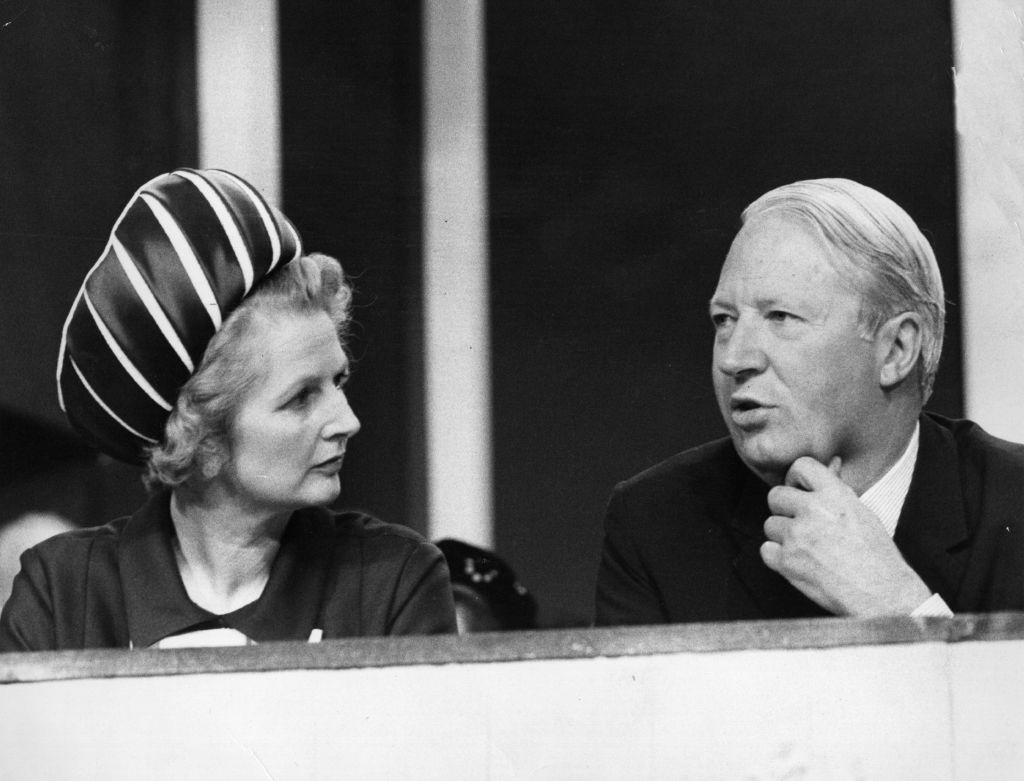The former Tory MP Christopher Hollis wrote for The Spectator in 1960 that ‘a Conservative conference is, and is intended to be, the dullest thing that ever happened. Party members come not to hear their leaders but to see them. One sometimes wonders if it would be best to cut out the speeches altogether.’ Hollis duly recalled the view of former Tory leader Arthur Balfour, who claimed he would sooner take the advice of his valet than that of a Tory conference.
Among academics, the Balfour-Hollis view is generally endorsed. Compared to the annual conference of the Labour party, which officially ‘makes’ Labour policy, the Tories’ own gatherings have generally been portrayed as sterile affairs, comprising bland speeches from bored ministers and lengthy ovations from supine activists. As such, some predict that this year’s Tory conference will be relatively interesting: a four-day festival of dissent, perhaps, starring jilted supporters of net zero, tin-eared defenders of HS2 and a manically re-energised Liz Truss.
Tory conferences have historically been fractious, not boring. Hollis’s type of conference only occurred between the numerous crises that have rocked Britain’s oldest party. Once a crisis erupts, the conference usually changes, quickly transforming into a shop window for rebel causes and wannabe leaders.
This was demonstrated in the early years of the 20th century when the party was split over tariff reform and free trade. Reporting in November 1910, and with reference to the Tory conferences of the previous seven years, the Times recalled ‘the endless agitation from advocates of protection’, egged on by maverick MP Joseph Chamberlain. During the inter-war years, when Ireland became a splinter issue, F.E. Smith MP saw conference as ‘a cockpit, where disgruntled members unloose their grievances and make the feathers fly’. At the 1921 conference, during a fiery debate on the looming Anglo-Irish Treaty, the Daily Chronicle even reported ‘an exchange of punches in the middle of the hall’. (Though punchy itself, Nadine Dorries’s new book, The Plot, is unlikely to have quite the same effect in Manchester.)
At this year’s conference, the government may face some criticism about its ‘timid’ response to recent strike action. Again, this would not be unprecedented. The conference of 1926 savaged Stanley Baldwin’s response to that year’s General Strike, urging his government to abandon its conciliatory tone in favour of anti-union legislation (the punitive Trade Disputes Act 1927 quickly followed). As Baldwin discovered, Tory conferences can easily turn nasty if they sense leaders are weak and wobbly. At the 1956 conference, Anthony Eden was ambushed by a series of angry speakers, frequently citing the Telegraph’s recent demand for ‘the smack of firm government’. According to his biographer, David Carlton, Eden felt obliged to appease these critics with an astonishingly hawkish speech about the Suez crisis – with calamitous effects a fortnight later.
Harold Macmillan and Edward Heath also found conference a tricky occasion. This was particularly noticeable during debates on immigration, where criticism of their respective governments was so marked that fresh legislation was needed shortly afterwards (hence the Commonwealth Immigration Act 1962 and Immigration Act 1971). But the party’s immigration rebels were seldom placated, especially once they found a figurehead in Enoch Powell. At the conferences of the late 1960s and early 1970s, Heath was routinely berated by both Powell and his constituency supporters, making those weeks at the seaside an ongoing test of Heath’s leadership.
In the Thatcher era, the relationship between Tory conference and Tory leader was somewhat anomalous. This arose because many activists felt their leader, though ‘one of us’, was repeatedly frustrated by ‘wet’ colleagues at Westminster. So, for many party members, the role of conference was to convince Thatcher that she should follow her instincts and ignore the fainthearted, safe in the knowledge that grassroot members had her covered. This was hardly a recipe for calm conferences, as shown by the howling down of Heath and other advocates of economic U-turns in 1981. Six years later, delegates turned on minister Nicholas Ridley’s plan to introduce the poll tax gradually, rather than with what they called ‘one fell swoop’. As she sat on the platform listening, a chastened PM told Ridley that ‘we need to think again, Nick’.
En route to Manchester, Rishi Sunak might ponder what happened to Arthur Balfour
It was unsurprising that, following Thatcher’s departure, the Tory conferences of the 1990s became even more prickly. Instead of being praised for leading the party to victory at the 1992 general election, John Major and his ministers were heavily criticised at the 1992 conference by Thatcherite opponents of the Maastricht treaty. As a result, conference organisers tried to restrict the presence of Thatcher herself during the remainder of Major’s government; their fear being that she could have an incendiary effect on her assembled, Eurosceptic disciples.
In fairness to Hollis, the Tory conferences of this century have seemed quite bland (although Boris Johnson’s ‘chuck Chequers’ speech, in respect of Theresa May’s fated Brexit deal, did excite the conference fringe in 2018). This has something to do with the reform of party leadership contests after 1998; the ‘one-member-one vote’ contests of 2001, 2005, 2019 and 2022 served to divert internal tensions from conference into long, exhausting leadership campaigns. But this latest era of the ‘quiet conference’ could soon be over. As the Tories face electoral Gotterdammerung and the prospect of opposition, conference may soon be the place where ‘feathers fly’ yet again.
Meanwhile, en route to Manchester, Rishi Sunak might ponder what happened to Arthur Balfour. After repeatedly failing to heed conference’s plea to clarify his policies, Balfour presided over one of the deepest splits in the party’s history, the subsequent collapse of his government, and annihilation at the 1906 general election. Rather than preferring the advice of his valet, Balfour really should have listened to the Tory conference.







Comments